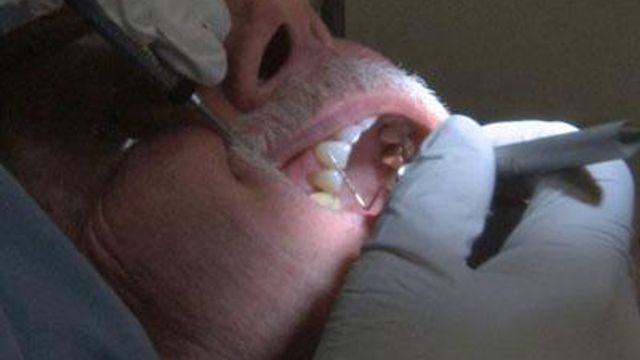Oral hygiene can impact more than just the mouth
The obvious advantages of proper oral hygiene - like keeping teeth where they are supposed to be - are no secret, but new research continues to show that people who take good care of their mouth can also be taking care of their heart and mind.
Posted — UpdatedThe problem, according to periodontist Steve Offenbacher, is that most adults don't practice oral hygiene that is good enough.
Usually, that lack of attention leads to gum disease, which impacts about half of all adults in the United States, Offenbacher said. Sometimes, however, the problems can spread past the mouth.
For the 15 percent of people who have severe gum disease, the issues created by poor oral hygiene can lead to much more than just tooth loss. At times, the medical issues brought on by gum disease can be serious and potentially life-threatening.
"If you have gum disease, for example, you're twice as likely to have a heart attack and three times as likely to have a fatal stroke," Offenbacher, a doctor at the University of North Carolina at Chapel Hill Medical Center, said.
It starts with bacterial growth that can lead to infection and inflammation. Those problems can spread into the bloodstream.
"It begins this sort of cascade of inflammation," Offenbacher said. "And it can move through the bloodstream to vital organs."
People who smoke, have Type 1 diabetes or a family history of gum disease are especially at risk.
Jay Langhurst has always been a little more aware of his health, but it wasn't initially because of gum disease. He has Type 1 diabetes.
"I can tell when everything is normal and when blood sugars are elevated, there is usually something wrong," he said.
Doctors tried conservative treatments to clean out the infection, but they were unsuccessful. Eventually, Langhurst and his doctors decided surgery was the best option.
Now, Langhurst is more careful about his oral care because he knows the potential impact it could have on his body.
Offenbacher says periodontal research is aimed at finding out who is genetically at higher risk for gum disease. That could help doctors personalize care for those patients to help manage their condition.
As usual, doctors recommend two trips to the dentist every year, even for people with no history of gum disease.
• Credits
Copyright 2024 by Capitol Broadcasting Company. All rights reserved. This material may not be published, broadcast, rewritten or redistributed.






